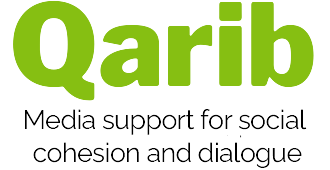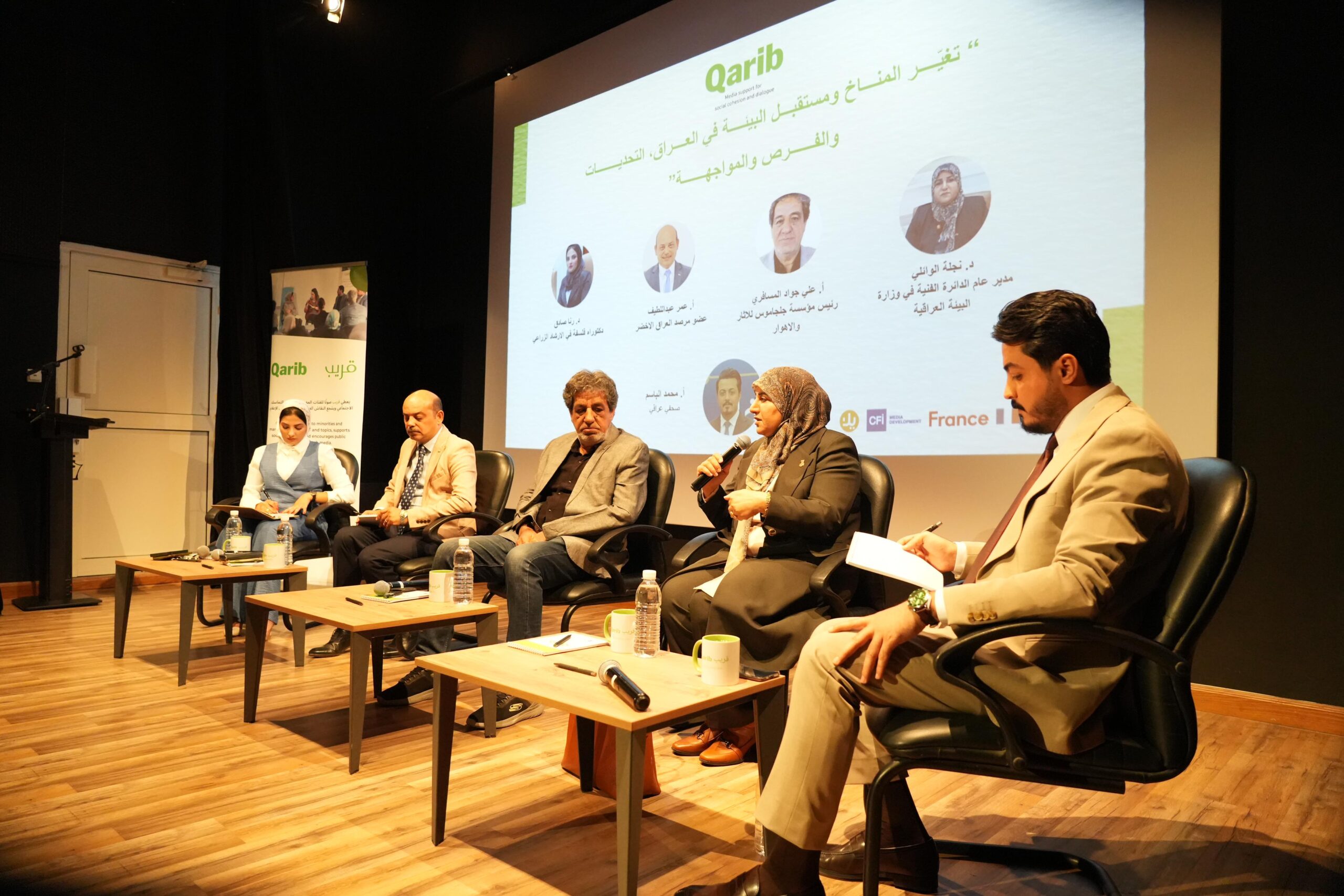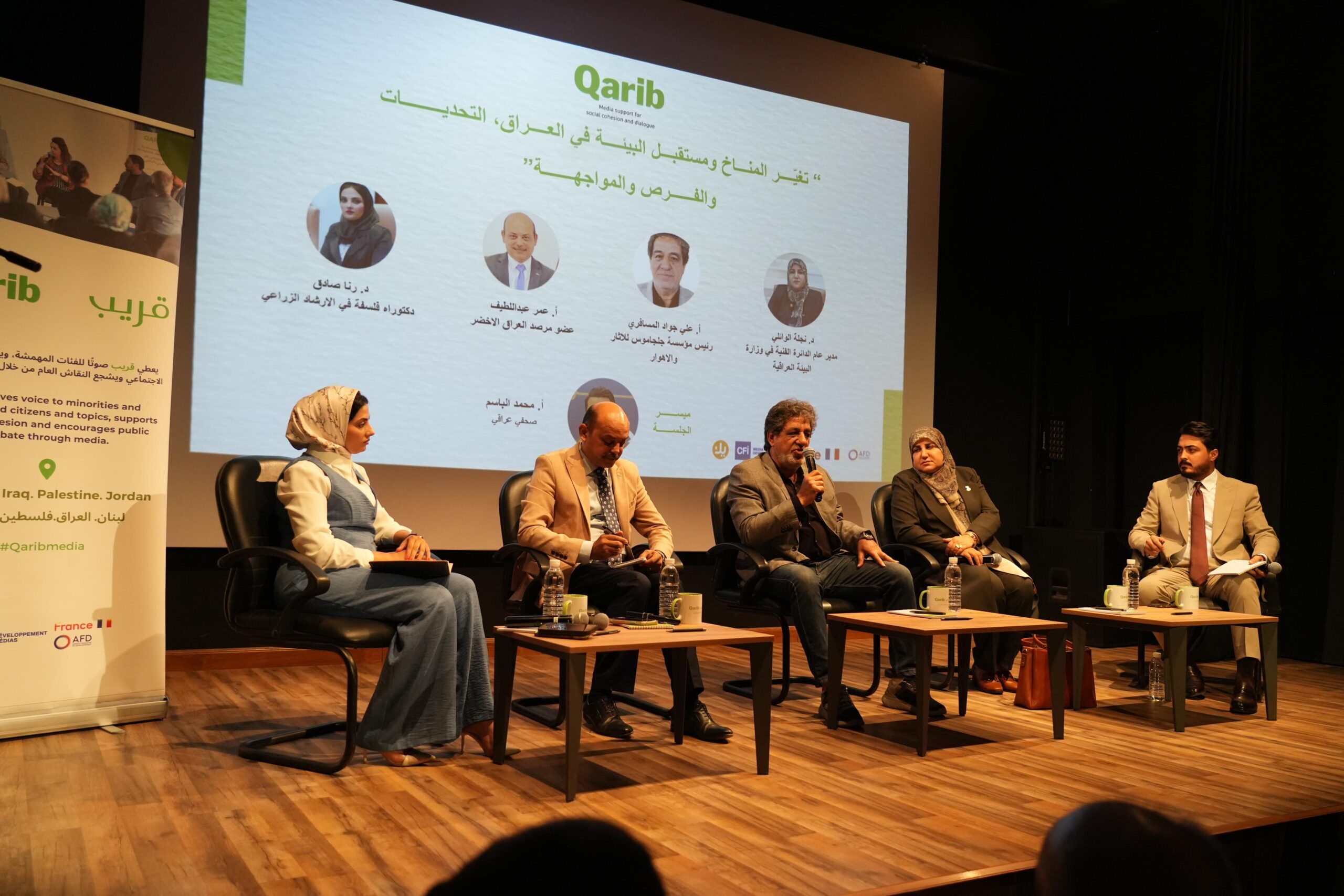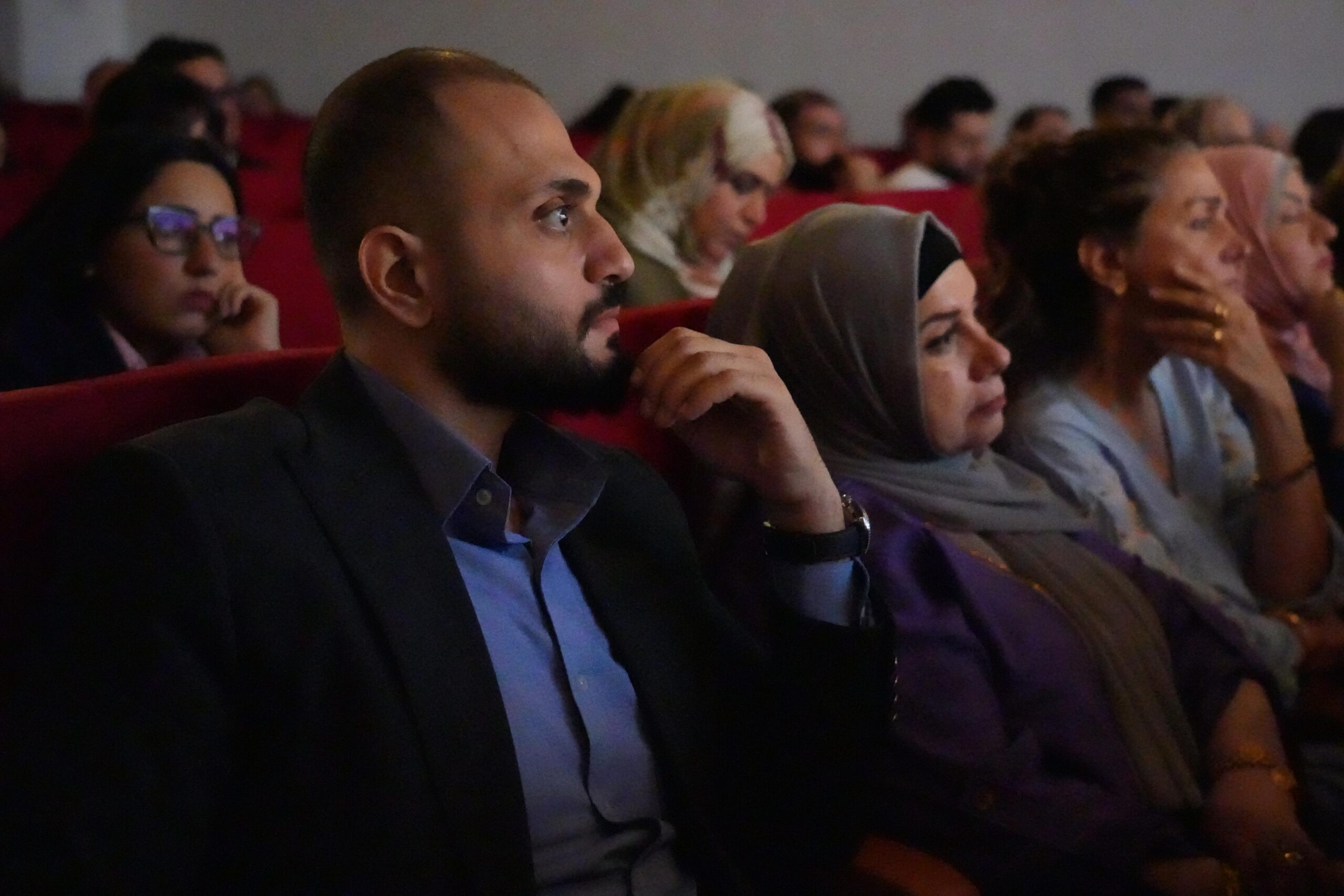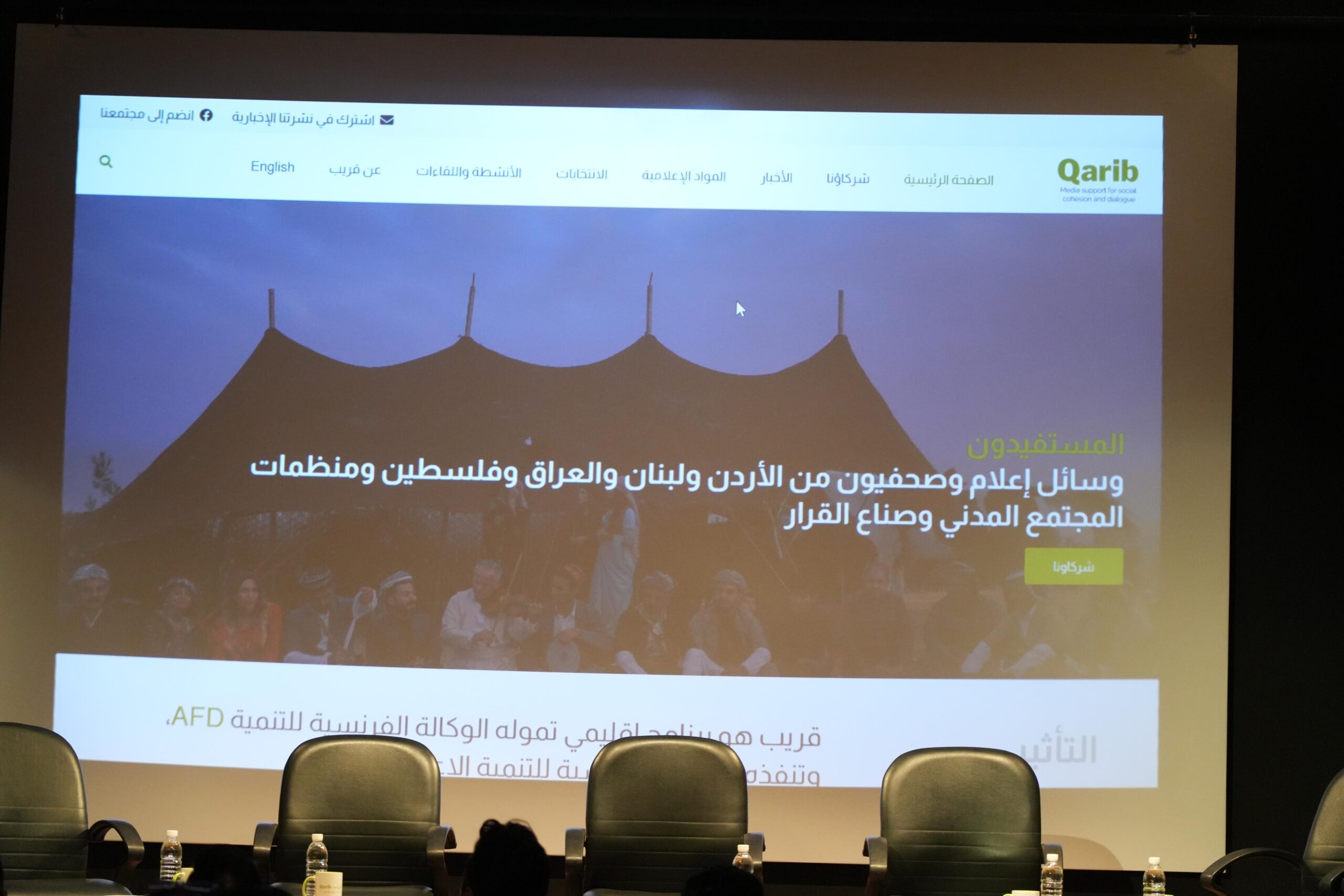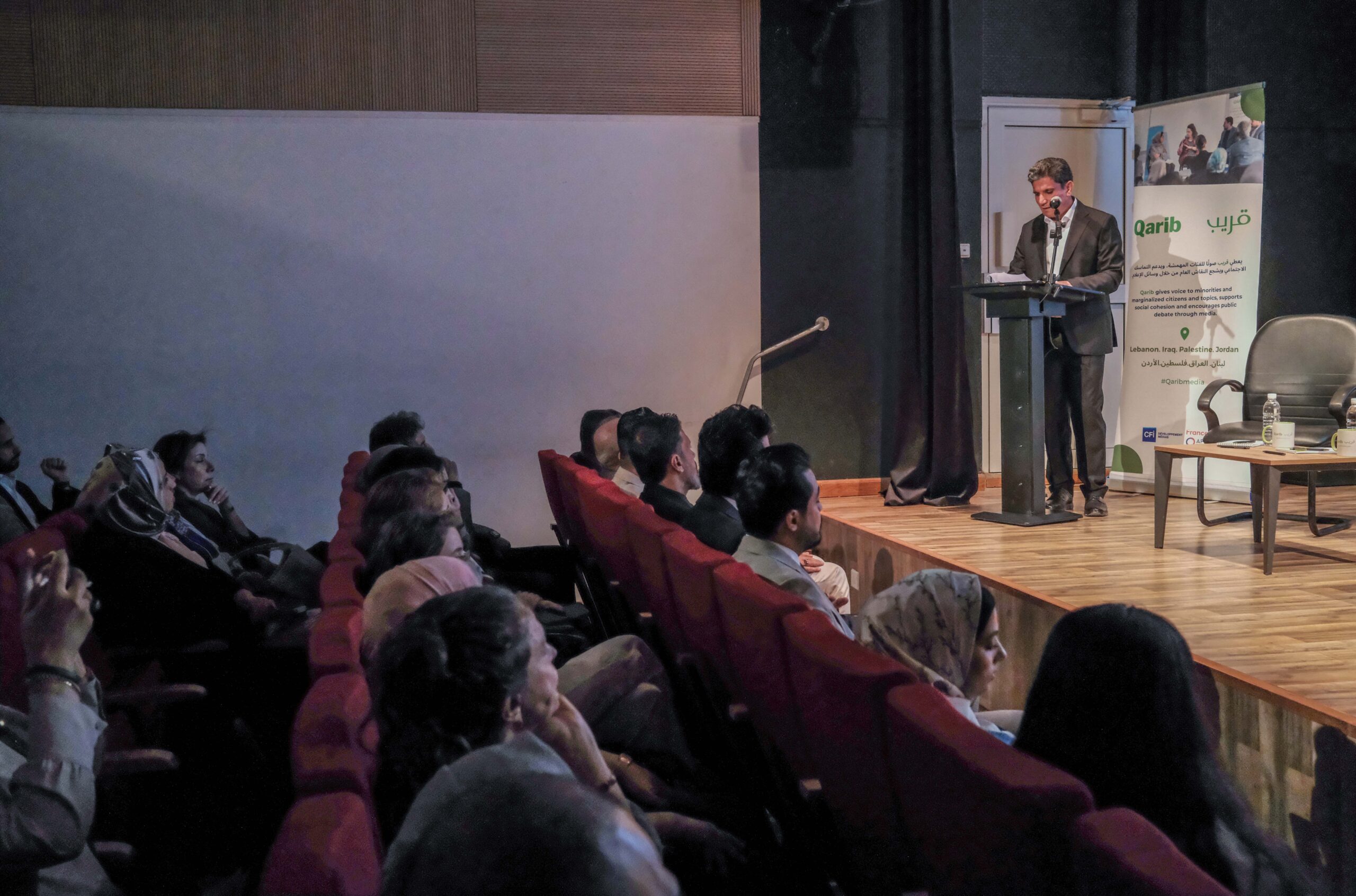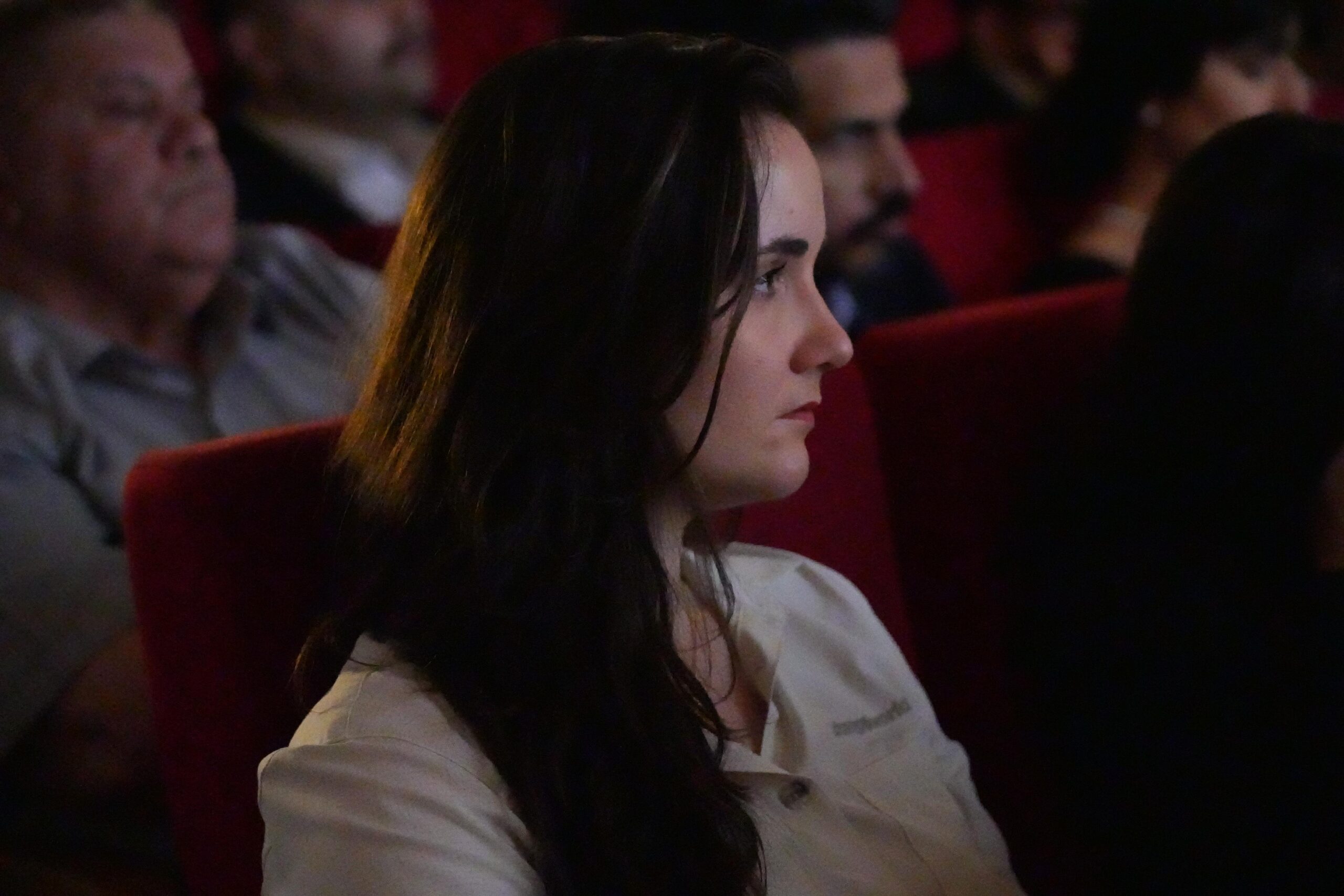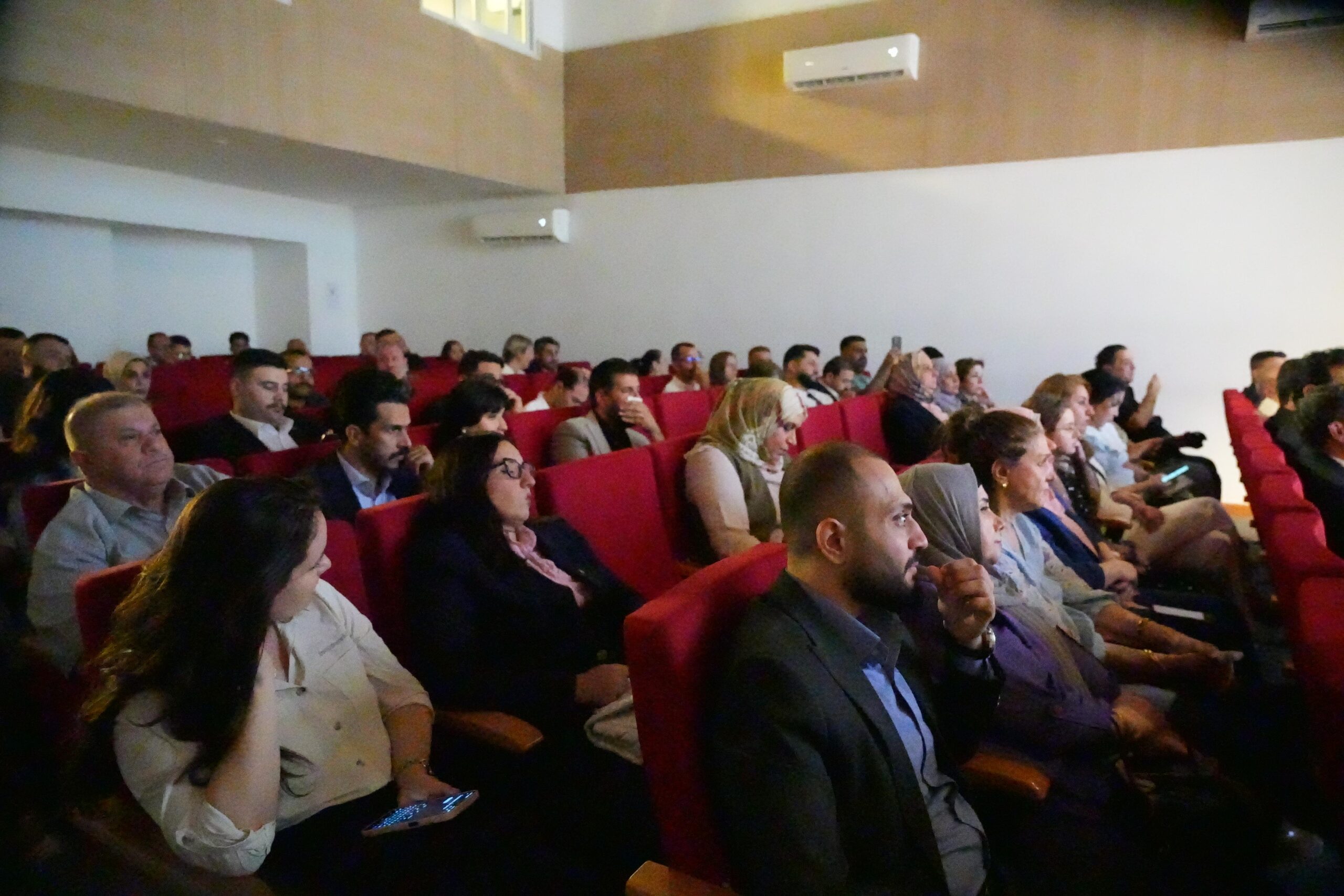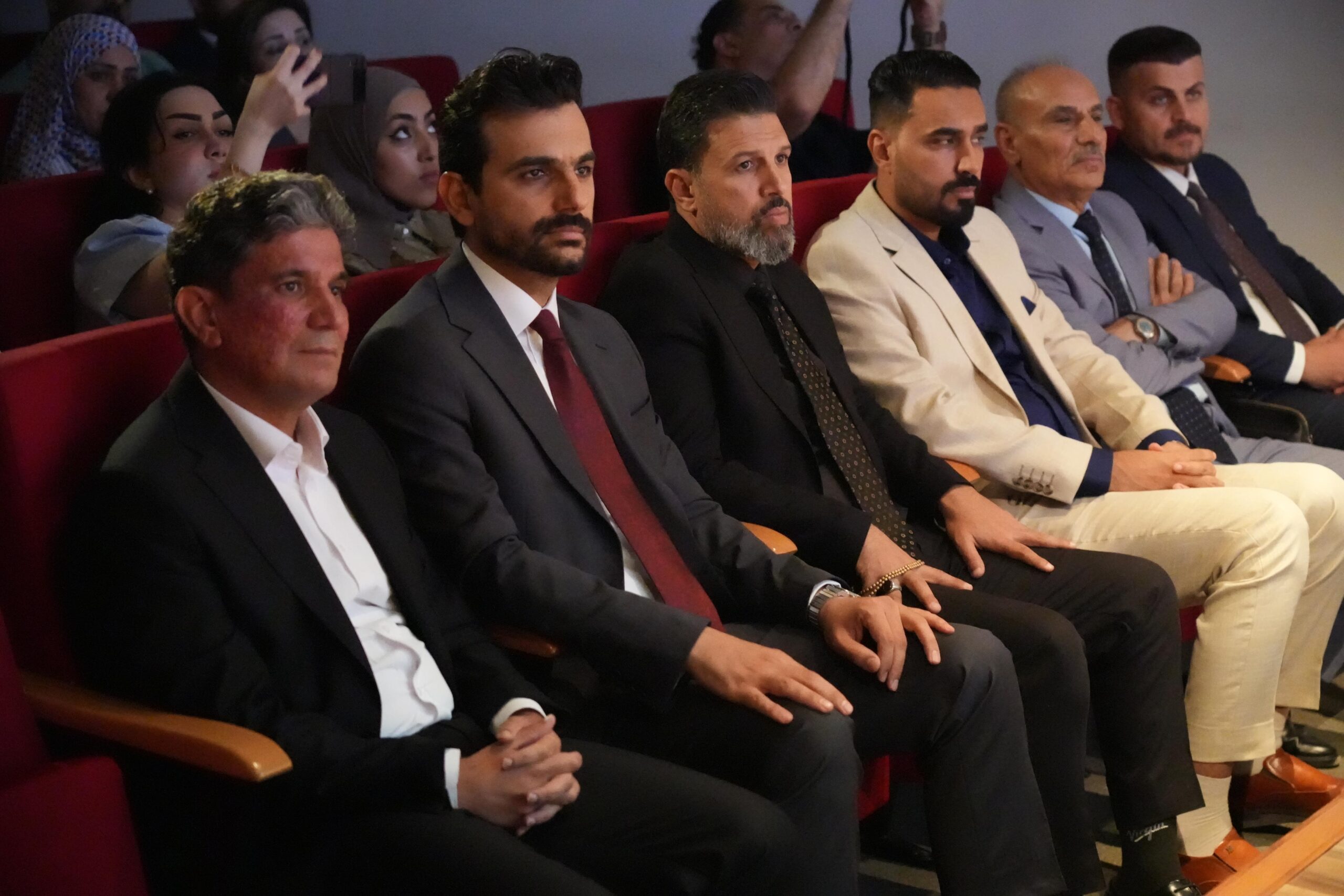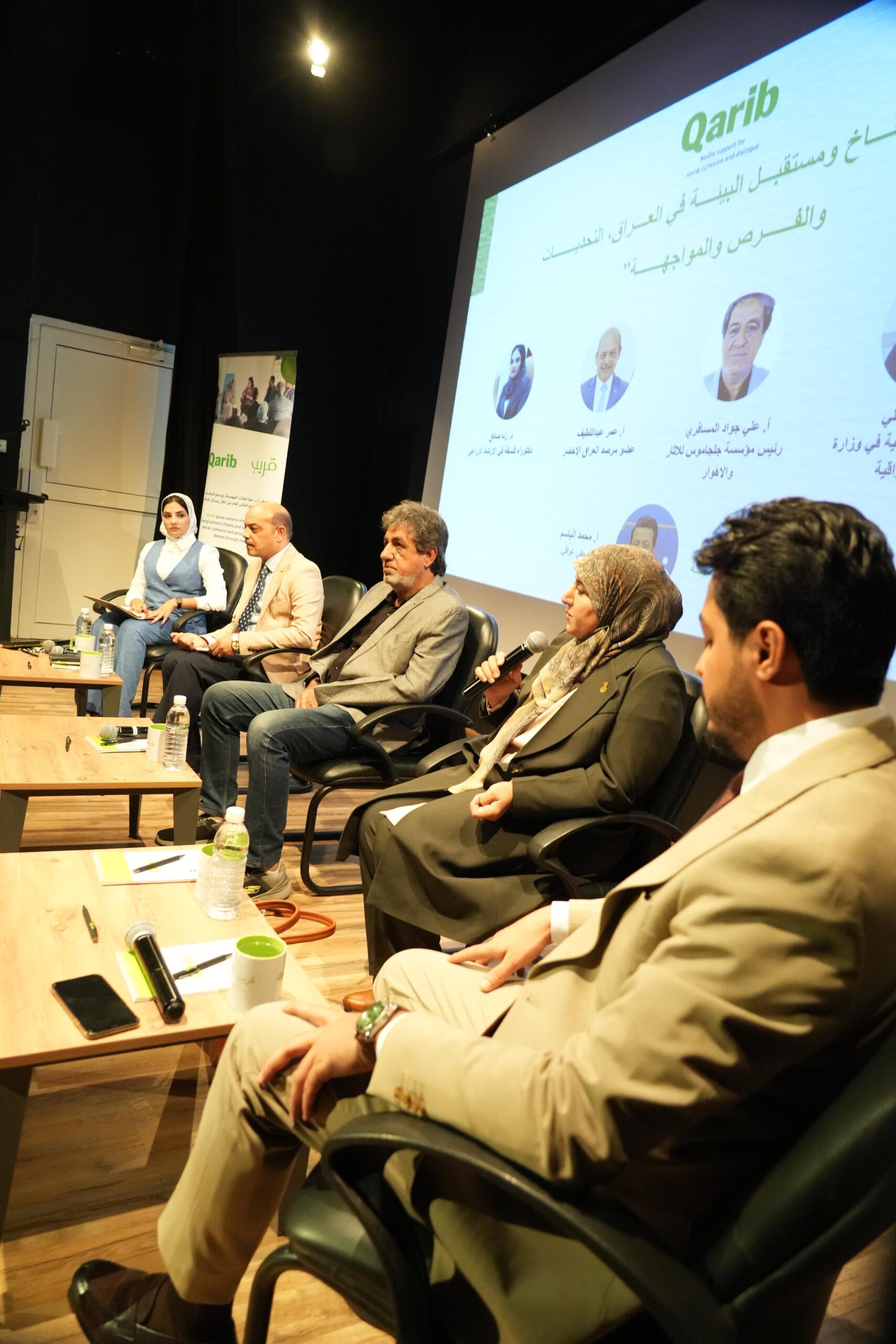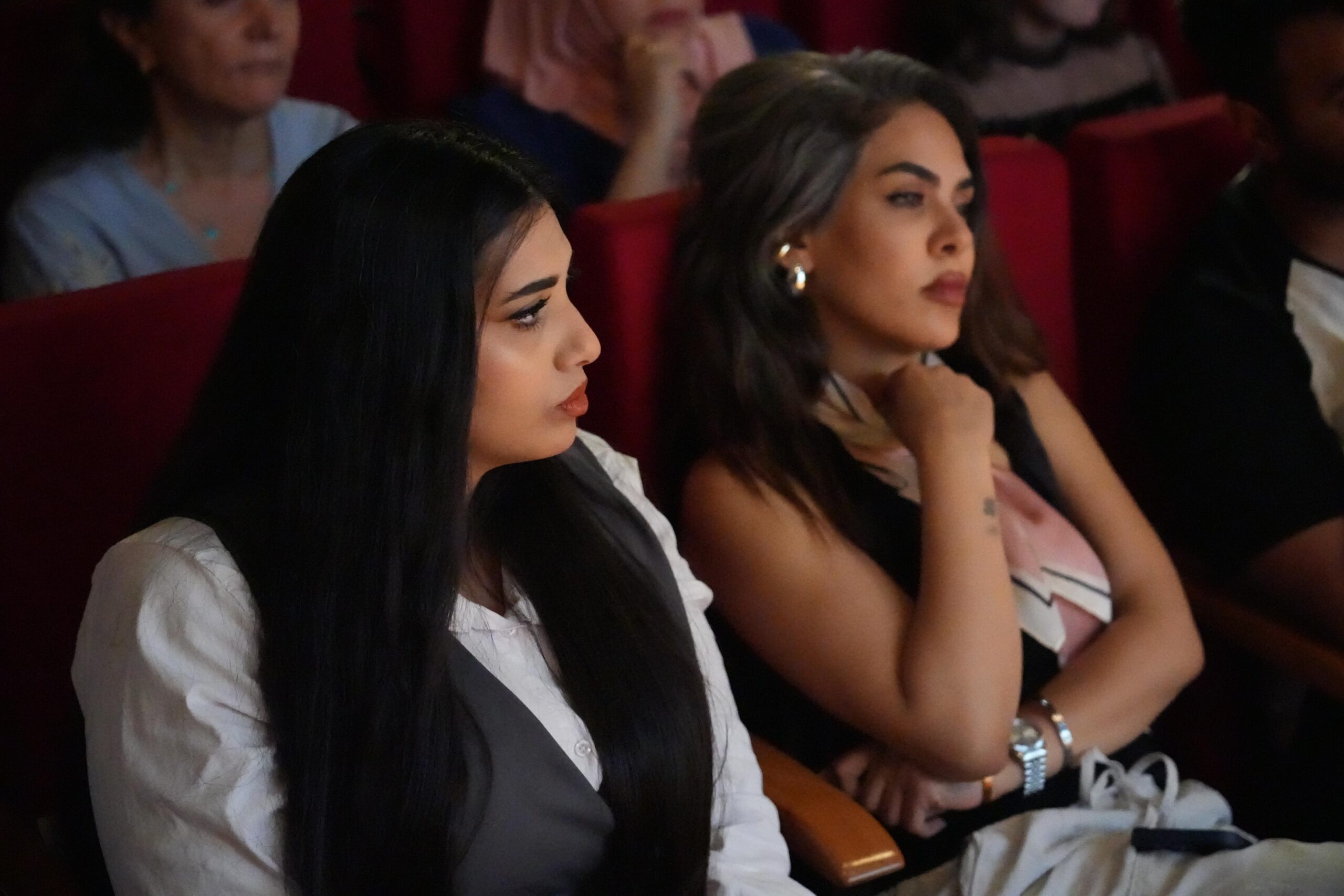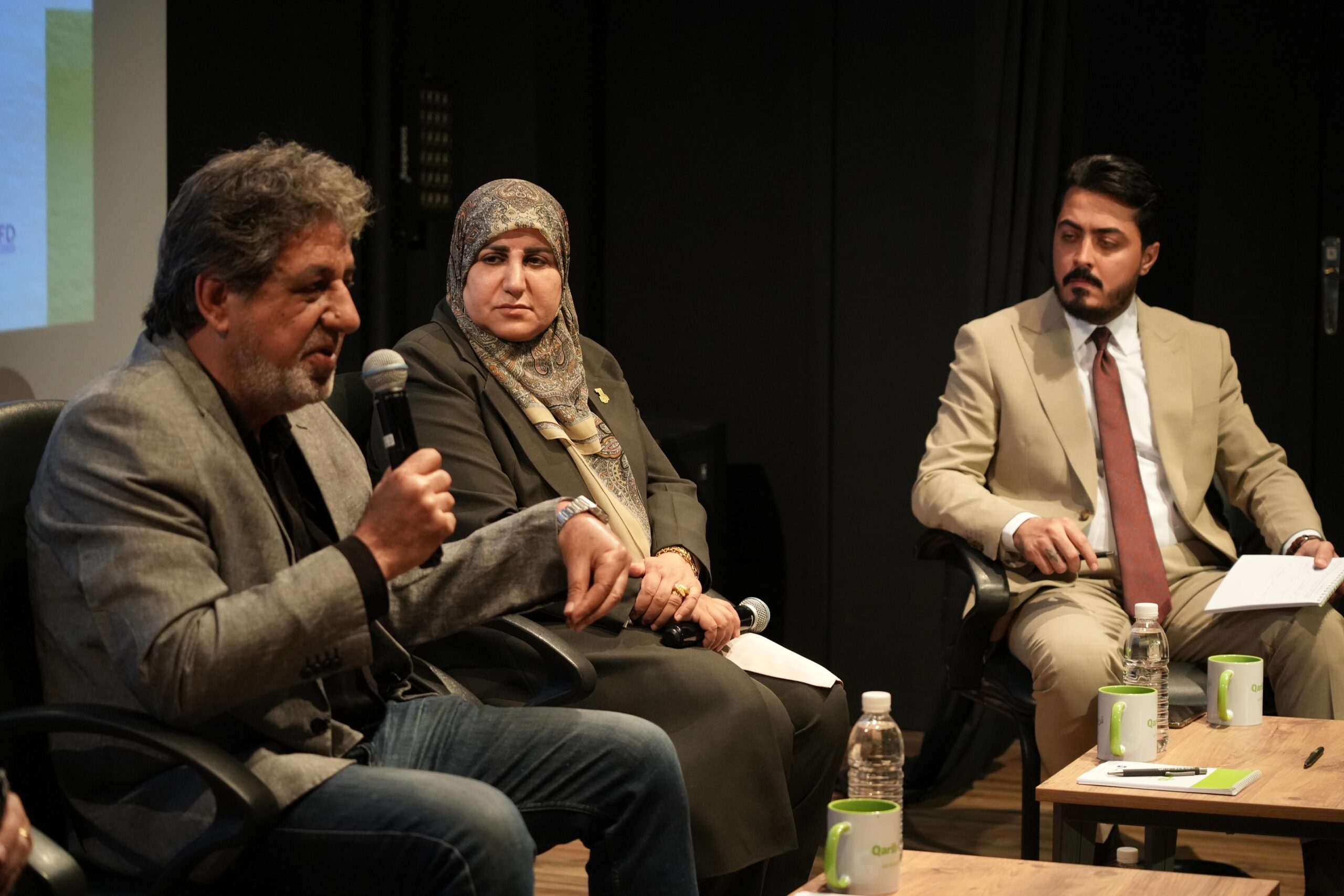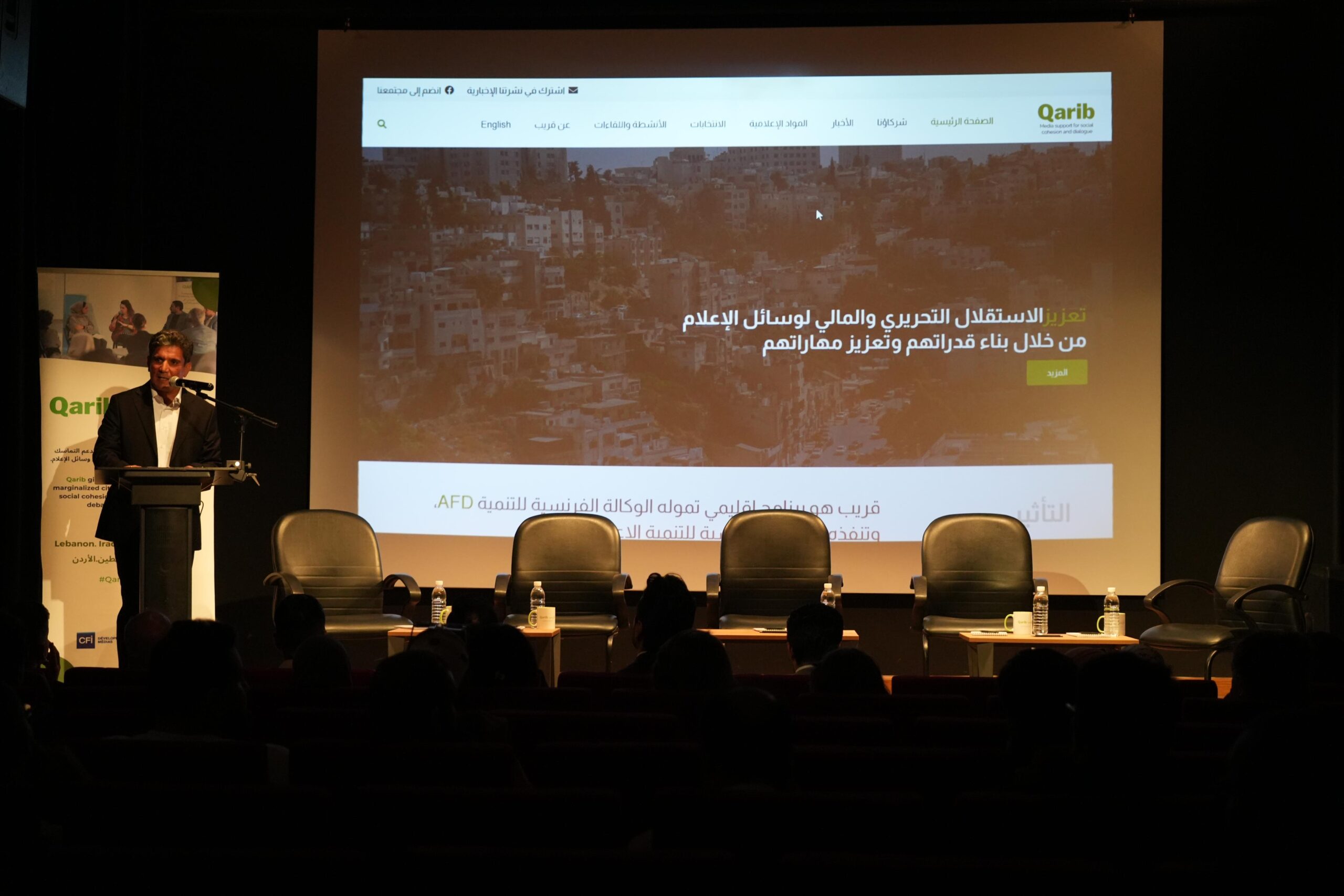From Dust to Drought: Qarib Climate Change Debate in Baghdad
Baghdad, Iraq – The air over Baghdad hangs heavy not just with dust and heat, but with a growing sense of dread. The twin rivers, Tigris and Euphrates, that once sustained empires are dwindling, and Iraq faces an existential reckoning.
That reckoning took center stage on August 30th at the French Institute in Baghdad, where more than 100 people joined experts, officials, and citizens for a frank conversation about Iraq’s environmental future. Organized by CFI’s regional program Qarib in partnership with Yalla Media, the panel highlighted how water scarcity, extreme heat, and pollution are reshaping daily life.
Moderated by journalist Mohammed Al-Basim, the discussion featured Dr. Najla Al-Waeli (Ministry of Environment), Dr. Rana Sadiq (Agricultural Extension), Omar Abdul Latif (Iraq Green Observatory), and Dr. Ali Jawad Al-Musafri (Jiljamus for Archeology and Marshlands). Their testimonies revealed a nation running out of time.
Water on the Brink
Dr. Al-Waeli, with 35 years at the Ministry, warned that Iraq is suffering from “decades of neglect” and called heatwaves above 50°C for more than a month “a very dangerous indicator.” Thirty-nine water supply points in southern Iraq are already out of service.
Al-Musafri declared bluntly: “The Iraqi environment is on the brink of collapse. There are no solutions to preserve it.” He cited the severe degradation of Hor Al-Hawizeh, once a UNESCO World Heritage site.
Adding urgency, Abdul Latif reminded the audience that Turkey’s temporary water release was ending the next day: “No regulators, no dams with water. I want to see how we will deal with it.”
A Crisis of Governance
Beyond environmental collapse lies a broader challenge of governance and regional cooperation. Dr. Al-Waeli acknowledged that the Ministry relies significantly on international support, while Dr. Al-Musafri pointed to Iraq’s limited leverage in water negotiations with its neighbors. Participants noted that institutional reforms are under way, but that implementation will need to move faster to keep pace with the crisis.
Audience interventions reflected both concern and determination. Some highlighted the risks of social tensions if water scarcity deepens, while others underlined the importance of long-term planning, warning that the years ahead will be decisive for Iraq’s environmental future.
Searching for Solutions
Several ideas surfaced during the debate — from modern irrigation systems to closed-cycle fish farming and reforestation campaigns. While panelists acknowledged these are incremental steps, they emphasized the need for coordination and sustained investment. Environmental management professor Dr. Suad Jassim Reda called for a national disaster risk body and greater space for researchers and academics to contribute to policy design.
The discussion concluded on a constructive note: Iraq’s climate crisis, while daunting, can also become a driver for reform, innovation, and regional dialogue. Through such debates, Qarib seeks to foster dialogue that connects citizens, experts, and decision-makers on Iraq’s most urgent challenges. The vibrancy of this exchange offered a glimpse of hope — showing that an aware citizenry and active media professionals are essential to keeping these issues at the center of public debate and to shaping solutions for the future.
Qarib is a regional program funded by the French Development Agency (AFD) and implemented by the French Media Development Agency (CFI).
